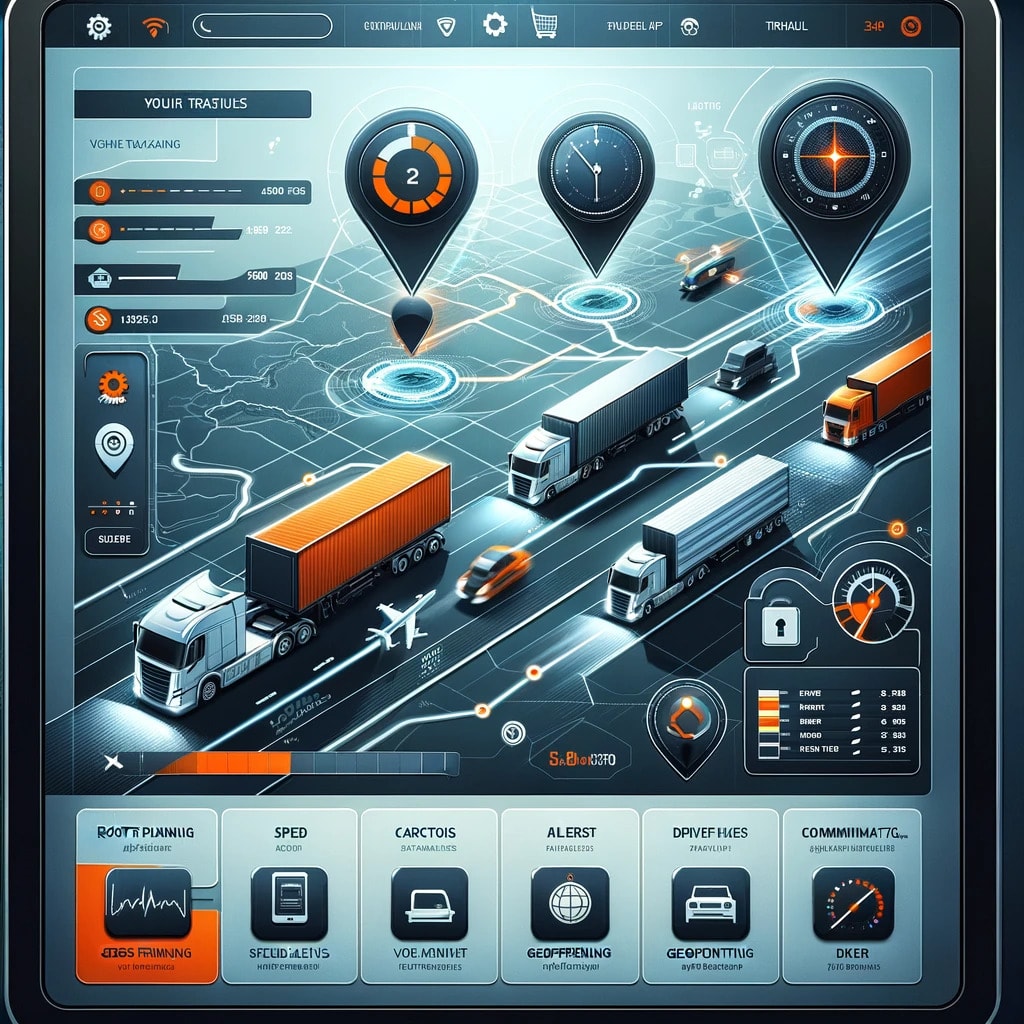The GPS Revolution: Transforming Transportation with Tracking Systems.
Navigating the Digital Roadmap of Mobility and Efficiency

The GPS Revolution: Transforming Transportation with Tracking Systems
In today's fast-paced world, transportation is a critical component of our daily lives and the global economy. Whether it's the delivery of goods, commuting to work, or emergency services responding to crises, efficient transportation is essential. The Global Positioning System (GPS) has played a pivotal role in transforming the way we navigate and manage transportation.
In this article, we'll explore how the gps vehicle monitoring system revolution is reshaping transportation through tracking systems.
The Birth of GPS
The GPS system, initially developed by the United States Department of Defense, became fully operational in 1995. It consists of a network of satellites that orbit the Earth, transmitting precise timing and location information. These signals are received by GPS receivers, which calculate the receiver's exact position on Earth.
Enhancing Navigation
One of the most significant impacts of GPS technology is its role in navigation. Before GPS, paper maps and compasses were the primary tools for finding directions. GPS devices and smartphone apps have made navigation easier and more accurate. Commuters, travelers, and drivers worldwide now rely on GPS for real-time guidance, reducing the chances of getting lost and improving overall road safety.
Fleet Management Revolution
The GPS revolution extends beyond personal navigation. It has been a game-changer in fleet management for businesses of all sizes. GPS vehicle tracking systems offer a range of benefits:
Real-time Tracking: Fleet managers can monitor the location and movement of vehicles in real-time, enabling better route planning and efficient dispatching.
Optimized Routes: GPS systems can suggest the quickest and most fuel-efficient routes, reducing operational costs and carbon emissions.
Improved Safety: Tracking systems can help identify unsafe driving behaviors, such as speeding or harsh braking, allowing companies to address these issues proactively.
Enhanced Customer Service: Accurate arrival time estimates and tracking information improve customer satisfaction, particularly for delivery and logistics companies.
Asset Protection: GPS tracking helps prevent theft and aids in the recovery of stolen vehicles and cargo.
Public Transportation Advancements
Public transportation agencies have also embraced GPS technology to enhance services. Buses and trains equipped with GPS can provide passengers with real-time arrival information, reducing wait times and improving the overall commuting experience. Furthermore, transit agencies can optimize routes and schedules, making public transportation more efficient and cost-effective.
Emergency Services and GPS
In emergency services, every second counts. GPS tracking software technology has become a lifeline for first responders. Ambulances, fire trucks, and police cars are equipped with GPS tracking systems that enable dispatchers to send the closest units to an incident swiftly. This technology can be particularly vital in life-and-death situations.
Environmental Impact
The GPS revolution isn't just about convenience and efficiency; it also has significant environmental implications. By optimizing routes and reducing idle time, GPS tracking systems help decrease fuel consumption and greenhouse gas emissions. Businesses operating large fleets can make a substantial contribution to sustainability efforts by embracing GPS technology.
Challenges and Considerations
While GPS vehicle monitoring system systems offer numerous benefits, they also raise concerns about privacy and data security. It's essential for organizations to implement robust data protection measures to safeguard sensitive location information. Additionally, the reliance on GPS can create vulnerabilities, as it's susceptible to signal jamming and spoofing, highlighting the need for backup systems and cybersecurity measures.
The Future of GPS in Transportation
The GPS revolution is far from over. Future innovations in GPS technology will likely include improved accuracy, faster satellite acquisition, and enhanced integration with other emerging technologies such as autonomous vehicles. As transportation continues to evolve, GPS will remain a fundamental tool for managing and optimizing mobility.
Conclusion
The GPS revolution has had a profound impact on transportation, from personal navigation to fleet management and emergency services. It has made our lives more convenient, efficient, and safer. As we look ahead, the continued development and integration of GPS technology promise to further transform the way we move people and goods, making transportation more sustainable and responsive to the needs of our rapidly changing world. Embracing these advancements is not just a matter of convenience; it's about shaping a smarter, more efficient, and more sustainable future.
About the Creator
Vamosysgps
Fuel level sensors are devices used to measure and monitor the quantity of fuel in a tank or reservoir. They are commonly used in various industries, including automotive, marine, aviation, and industrial applications.






Comments (1)
very informative use some keywords to get more views i do the same